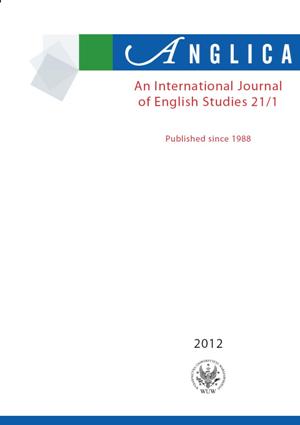The Great War revisited: the laughter of the fool and the shame of the coward in Paul Bailey’s "Old Soldiers"
The Great War revisited: the laughter of the fool and the shame of the coward in Paul Bailey’s "Old Soldiers"
Author(s): Marzena Sokołowska-ParyżSubject(s): Literary Texts
Published by: Wydawnictwa Uniwersytetu Warszawskiego
Keywords: Paul Bailey; Ted Hughes; literature; the Great War; veteran; crisis of masculinity; laughter; shame
Summary/Abstract: The purpose of the paper is an analysis of the representations of the cultural memory of the Great War in Paul Bailey’s novel Old Soldiers. The discussion will focus on the metaphorical representation of the futility myth (laughter) and the psychological representation of the crisis of masculinity (shame). The laughter of the fool has obvious connotations with the Book of Ecclesiastes, yet, as the analysis will prove, the depiction of the memory of the first day of the Somme battle through the prism of laughter has an important predecessor in Ted Hughes’s poetic sequence Crow. The attempts to escape the memory of cowardly conduct will be set in the context of the psychology of shame, which will allow deeper insight into the construction of the antihero in British literature about the Great War.
Journal: ANGLICA - An International Journal of English Studies
- Issue Year: 21/2012
- Issue No: 1
- Page Range: 17-30
- Page Count: 14
- Language: English

